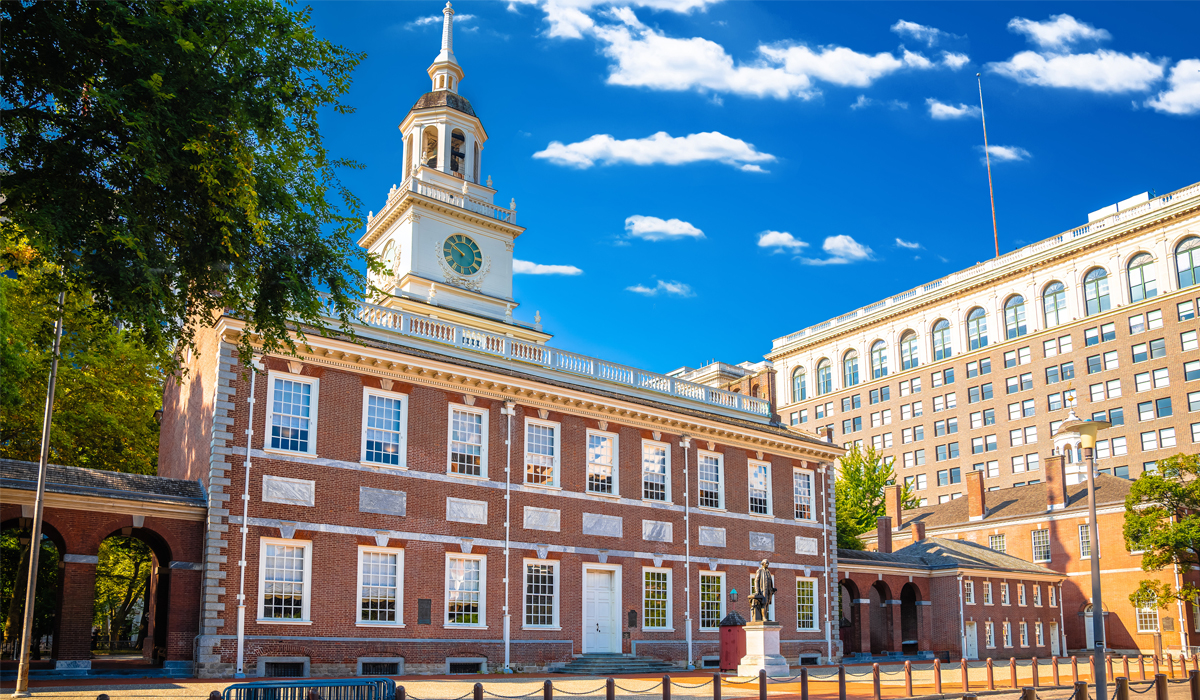 On September 17, Catholic Law's Professor Derek Webb delivered the Constitution Day talk at the University of Pennsylvania Carey Law School. The event, co-sponsored by both Penn Law’s American Constitution Society and Federalist Society, drew a large audience eager to hear Webb’s insights on a little-known historical document connected to the creation of the Constitution.
On September 17, Catholic Law's Professor Derek Webb delivered the Constitution Day talk at the University of Pennsylvania Carey Law School. The event, co-sponsored by both Penn Law’s American Constitution Society and Federalist Society, drew a large audience eager to hear Webb’s insights on a little-known historical document connected to the creation of the Constitution.
Speaking just a few miles from where the Constitution was signed in Independence Hall, Webb delved into the history of a short but significant letter signed by George Washington. This letter, produced and approved by the Constitutional Convention on September 17, 1787, was intended to “accompany” the newly drafted Constitution. In it, Washington emphasized the importance of a “spirit of amity”—a spirit of mutual concession, deference, and civility—that Washington said had been “indispensable” during the convention’s deliberations.
Webb highlighted the historical significance of the letter, noting that it was originally published alongside every printing of the Constitution and was more frequently cited than the Federalist Papers in its time. However, the letter has since faded into obscurity, and the original signed document was lost in the late 19th century.
Webb argued that the ideal of the “spirit of amity” was as central to the original American constitutional project as the better-known ideals of liberty and equality. It was, he said, core to the legitimacy of the new Constitution. At a time of heightened polarization, mutual suspicion, and even political violence, Webb called for a revival of this "lost and forgotten" ideal, urging Americans to re-acquaint themselves with this “lost and forgotten” letter.
The subject of his talk, titled “The Spirit of Amity: The Constitution’s Lost and Forgotten Cover Letter and the Original Meaning of Civility,” is the focus of a forthcoming book he is writing under contract with Cambridge University Press. The research for this project was conducted this past summer during his fellowship at the George Washington Presidential Library at Mount Vernon.
